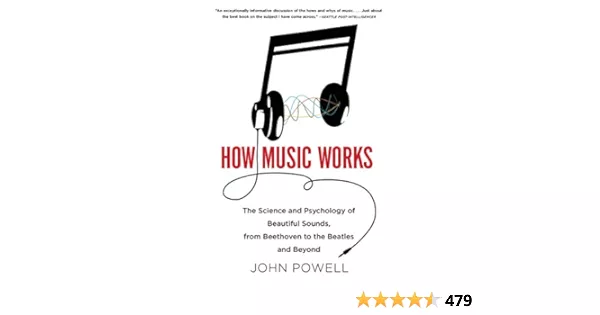Music has been an integral part of worship across various religions and spiritual practices throughout history. From the resonant chants in Buddhist temples to the soul-stirring gospel music in Christian churches, the power of music to enhance spiritual experience is universally acknowledged. This article delves into the multifaceted role of music in worship, exploring its historical roots, psychological impact, and its ability to create community and convey theological teachings.
Historical Roots of Music in Worship
The use of music in worship is as old as religion itself. Historical records and ancient artifacts suggest that music has been used in spiritual rituals since prehistoric times. In Ancient Egypt, music played a crucial role in religious ceremonies, intended to appease gods and goddesses and facilitate the transition of souls to the afterlife. Similarly, in ancient Greece, music was integral to the worship of gods like Apollo, the god of music, poetry, and the arts.
The Old Testament of the Bible is replete with references to music as a form of worship. Psalms, essentially a book of songs, illustrates the use of music in communicating with God. King David, known for his psaltery and harp, is often depicted as a musician who pleased God with his music. In Christianity, hymns and chorales have shaped the liturgical traditions, each denomination cultivating its unique musical style to enhance the spiritual atmosphere.
Psychological Impact of Music in Worship
Music’s impact on human psychology is profound. It has the unique ability to evoke emotions, enhance mood, and even alter perceptions. In the context of worship, music transcends mere enjoyment or aesthetic pleasure—it becomes a vehicle for spiritual experience.
Emotional Resonance: Music can mirror the emotions of the soul, expressing joy, sorrow, repentance, or celebration. In a worship setting, it allows individuals to express their deepest feelings in a communal context, creating a shared emotional experience that can be deeply moving and transformative.
Cognitive Engagement: Music in worship often contains theological or doctrinal content. Hymns and religious songs can teach, reinforce, and internalize spiritual truths. For instance, many Christian hymns are not only musical compositions but also contain rich theological assertions that catechize as they are sung.
Memory and Recall: Music aids memory, which is why songs learned in childhood are remembered into old age. In worship, this attribute of music helps congregants remember spiritual truths and scripture, embedding them deeply into personal and collective consciousness.
Building Community Through Music
Music in worship is also a powerful tool for community building. Singing together can be a unifying act, fostering a sense of belonging and collective identity among congregants.
Unity and Participation: When a congregation sings together, it reflects a unity of purpose and belief. This collective action promotes a sense of inclusion and participation that can be more difficult to achieve through spoken words alone.
Cultural Expression and Adaptation: Music varies significantly across different cultural expressions of the same faith. For example, African American spirituals, Latin American liberation theology-inspired hymns, and traditional European chorales reflect the diverse ways in which communities engage with and celebrate their faith through music.
Cross-generational Bonding: Worship music bridges generations, connecting the old and the young through shared melodies and lyrics that have stood the test of time or through new compositions that reflect contemporary spiritual experiences.
Conveyance of Theological Teachings Through Music
Music is not just an emotional and communal conduit but also a didactic tool. In many faith traditions, music serves as a means to teach and reinforce spiritual doctrines and ethical teachings.
Narrative and Storytelling: Many religious songs narrate historical events from scriptures or saints’ lives, making these stories more accessible and memorable to the congregation.
Theological Reflection: Complex theological concepts are often encapsulated in the lyrics of hymns and songs. These musical pieces allow for theological reflection and rumination, making abstract concepts more tangible through melody and harmony.
Moral Instruction: Songs in worship settings often carry moral messages and ethical imperatives. Singing about virtues such as love, patience, forgiveness, and justice can motivate believers to live out these values in their daily lives.
Contemporary Worship Music: Evolving Traditions
In modern times, the style and form of worship music continue to evolve, reflecting broader musical trends and cultural shifts. From traditional organ hymns to contemporary Christian rock bands, music remains a dynamic and vital component of worship.
Technological Advancements: Technology has transformed music production and dissemination. Digital media allows for a wider distribution of worship music, reaching global audiences and connecting diverse faith communities.
Eclectic Musical Influences: Contemporary worship music often incorporates elements from various musical genres, creating a rich, eclectic sound that can appeal to a broad audience. This inclusivity in musical style can attract younger congregants and those who might not connect with traditional hymnody.
Personal and Communal Expression: Modern worship music provides spaces for both personal reflection and communal participation. Whether through massive concerts or intimate church services, it supports spiritual journeys in diverse settings.
Conclusion
Music’s role in worship is profound and multifaceted. From its historical roots in ancient rites to its modern manifestations in contemporary church services, music has always been a cornerstone of spiritual expression and experience. Its power to unite, to teach, to evoke emotion, and to facilitate communication with the divine continues to make it an essential element of worship across cultures and generations.
In conclusion, the enduring presence of music in worship not only enriches the spiritual life of individuals but also strengthens the fabric of religious communities. As we look forward, it is clear that music will continue to play a vital role in worship, echoing the joys, sorrows, hopes, and prayers of humanity to the divine.
Related topics:


























